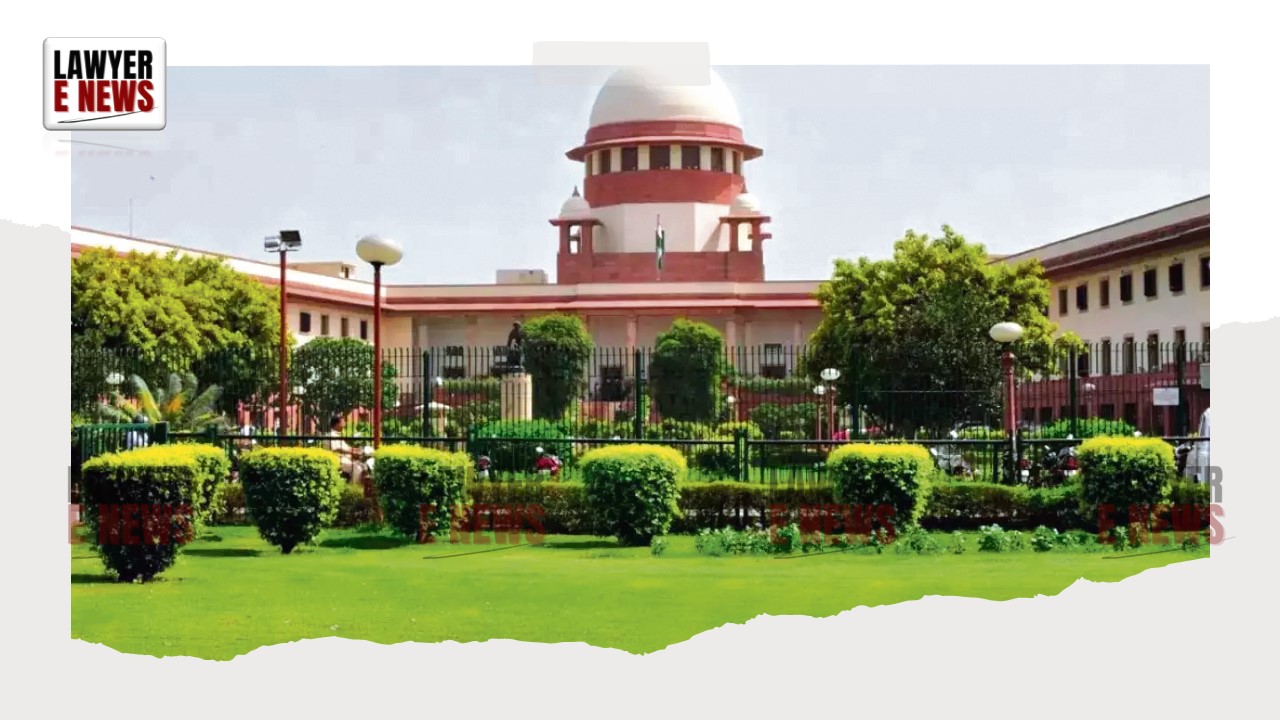-
by Admin
15 February 2026 5:01 PM



Non-Compliance of Judicial Orders Erodes the Rule of Law": Supreme Court Orders Strict Compliance with TDR Rules - Supreme Court of India found the State of Karnataka and its authorities guilty of wilful disobedience of judicial orders directing the issuance of Transferable Development Rights (TDR) certificates to landowners. These lands were acquired for road widening projects in Bengaluru.
The bench, comprising Justice M.M. Sundresh and Justice Aravind Kumar, criticized the authorities for intentionally delaying compliance and violating the court’s orders issued on November 21, 2014, May 17, 2022, and March 19, 2024. The court imposed costs of ₹1 lakh on the contemnors and directed the issuance of TDR certificates within six weeks, based on market values prescribed under the Karnataka Stamp Act, 1957.
The dispute centered on the Karnataka government's acquisition of 15 acres and 39 guntas of Bengaluru Palace land for the widening of Bellary and Jayamahal Roads. The Supreme Court, in 2014, directed the issuance of TDR certificates to the landowners as per the Karnataka Town and Country Planning (Benefit of Development Rights) Rules, 2016, which require valuation based on market rates under Section 45B of the Karnataka Stamp Act, 1957.
Despite clear directives, the government delayed compliance, citing financial hardship and administrative hurdles. The court rejected the state’s repeated attempts to modify its original order in 2021 and 2022, reiterating that the TDR certificates must be issued in line with the rules.
The court held that the government’s delay in implementing judicial orders for nearly a decade was deliberate and calculated.
“Non-compliance of judicial orders over years with full knowledge of their implications is a clear case of wilful disobedience. Delay tactics and contradictory positions by the government demonstrate an intentional effort to undermine the authority of the court.”
The court highlighted how the government failed to act promptly and instead resorted to filing modification applications, all of which were dismissed.
The Supreme Court rejected the government’s arbitrary and diminished valuation of TDR, holding that the certificates must reflect the market value as prescribed under the Karnataka Stamp Act, 1957.
Market Values as per Stamp Act (Guidance Values):
₹2,83,500 per sq. meter for Bellary Road.
₹2,04,000 per sq. meter for Jayamahal Road.
“The guidance value prescribed under the Karnataka Stamp Act, 1957, must form the basis of TDR issuance. Any deviation is contrary to the law and judicial directions.”
The court emphasized that the TDR rules mandate adherence to the guidance values fixed under Section 45B of the Karnataka Stamp Act and criticized the government for proposing arbitrary values to reduce its financial liability.
The bench noted that the Karnataka government and its agencies, including the BBMP and BDA, engaged in misrepresentation, suppression of facts, and contradictory affidavits.
“The contemnors suppressed the truth and presented false information before the court, attempting to evade compliance. Such conduct erodes the rule of law and warrants strict action.”
The court observed that inter-departmental delays and government orders contradicting judicial directions reflected the authorities’ lack of intent to comply.
The court recalled an additional condition imposed in its March 19, 2024 order, which required landowners to return compensation in case of adverse decisions in pending appeals.
“The additional conditions imposed by the March 19, 2024 order are unnecessary and contrary to the original directions. The orders of 2014 and 2022 must be implemented in their true form.”
The court directed the authorities to issue TDR certificates within six weeks, based on the guidance values prescribed under Section 45B of the Karnataka Stamp Act:
₹2,83,500 per sq. meter for Bellary Road.
₹2,04,000 per sq. meter for Jayamahal Road.
The court imposed costs of ₹1 lakh on each contemnor, except in CP No. 578 of 2022, for delaying compliance.
If the authorities fail to comply, the court directed the personal appearance of the Commissioner of BBMP and other responsible officers on January 22, 2025.
The court struck down the additional condition imposed by its March 19, 2024 order requiring recipients of TDR to furnish bonds for potential repayment.
The court clarified that mere theoretical or partial compliance is insufficient. Substantial action demonstrating good faith is required to fulfill judicial orders.
The court emphasized that contempt jurisdiction serves to uphold the dignity of the judiciary and ensure respect for judicial orders.
“Judicial orders must be implemented in letter and spirit, particularly when they protect the rights of marginalized landowners. Contempt proceedings are necessary when public authorities act in disregard of binding court directives.”
This ruling underscores the importance of enforcing judicial orders, especially against government authorities. By holding the Karnataka government accountable, the Supreme Court has reaffirmed the principle that the rule of law prevails over bureaucratic inaction or financial considerations. The judgment also reinforces the rights of landowners to fair compensation in line with statutory rules.
Date of Decision: December 10, 2024
